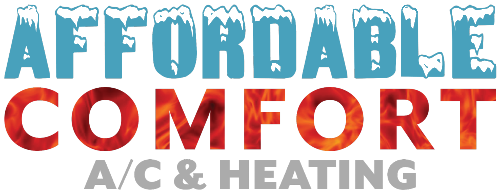How to Extend the Lifespan of an HVAC System with Simple Maintenance Tips
By implementing straightforward upkeep practices, homeowners can significantly extend their HVAC system's lifespan, reduce energy costs, and prevent costly repairs.
Regular maintenance is fundamental for preserving the longevity and performance of heating, ventilation, and air conditioning (HVAC) systems. By implementing straightforward upkeep practices, homeowners can significantly extend their HVAC system's lifespan, reduce energy costs, and prevent costly repairs. The following guide outlines essential maintenance tips that can help keep HVAC systems running smoothly for years. Proper care promotes optimal performance continuously.
Change air filters regularly
One of the simplest yet most effective ways to maintain an HVAC system is by changing air filters regularly. Clogged filters restrict airflow, forcing the system to work harder and consume more energy. Depending on usage and environmental factors, replacing filters every 30 to 90 days can improve air quality and reduce strain on the system. Clean filters enhance overall system efficiency.
Clean air vents and ducts
Dust, debris, and allergens accumulated in air vents and ducts can affect airflow and diminish indoor air quality. Regularly vacuuming vents and scheduling professional duct cleaning every few years can help maintain optimal system performance and create a healthier living environment. Thorough cleaning also improves circulation throughout the home.
Keep outdoor units clear
Maintaining a clear space around the equipment is essential for systems with outdoor components, such as air conditioning units or heat pumps. Removing debris, trimming vegetation, and keeping a minimum clearance of two feet around the unit allow for proper airflow and prevent potential damage from falling objects or overgrown plants. Unobstructed units operate more efficiently and consistently.
Schedule annual professional inspections
While homeowners can perform many maintenance tasks, scheduling annual inspections with a local HVAC expert is vital for identifying potential concerns before they escalate. Professional technicians can perform comprehensive checks, clean internal components, and make necessary adjustments to keep the system running at peak efficiency. Expert maintenance prolongs equipment service life.
Monitor thermostat settings
Proper thermostat use can significantly impact HVAC system longevity. Avoiding drastic temperature changes and utilizing programmable or smart thermostats to maintain consistent temperatures can reduce system tension and improve energy efficiency. Consistent settings prevent unnecessary system stress.
Seal air leakage
Identifying and sealing air leakage around windows, doors, and ductwork can prevent unnecessary strain on HVAC systems. Proper insulation and weatherstripping can help maintain desired indoor temperatures without overworking the heating or cooling components. Sealing leaks reduces energy waste significantly.
Clean evaporator and condenser coils
The evaporator and condenser coils are pivotal in heat exchange processes. Over time, these coils can accumulate dirt and debris, reducing their efficiency. An annual cleaning of these components can improve system performance and prevent unnecessary wear. Clean coils facilitate optimal heat transfer.
Lubricate moving parts
HVAC systems contain numerous moving parts that require proper lubrication to function smoothly. Regular lubrication of motors, bearings, and other components can reduce friction, minimize energy consumption, and extend the lifespan of these parts. Proper lubrication prevents premature part failure.
Check refrigerant levels
Proper refrigerant levels are essential for efficient cooling. Low refrigerant levels can provoke the system to work harder, potentially leading to compressor failure. Having a professional HVAC technician check and adjust refrigerant levels during annual maintenance can prevent costly repairs and improve system efficiency. Correct refrigerant levels maintain cooling capacity.
Maintain proper humidity levels
Excessive humidity can strain HVAC systems and promote mold growth. Using dehumidifiers in damp areas and maintaining proper ventilation can reduce the workload on air conditioning units and create a more comfortable indoor environment. Balanced humidity improves overall system performance.
Address unusual noises promptly
Unusual sounds coming from an HVAC system often indicate underlying issues. Promptly addressing these noises by consulting with a local HVAC expert can prevent minor problems from escalating into major repairs. Swift action prevents costly future repairs.
Keep vents open and unobstructed
Closing or blocking vents in unused rooms saves energy but can create imbalances in the system and increase strain on the equipment. Keeping all vents open and unobstructed allows for proper airflow and balanced operation. Open vents promote system-wide air circulation.
By implementing these simple maintenance tips, homeowners can greatly extend the longevity of their HVAC systems, increase energy efficiency, and keep a comfortable indoor environment. Regular upkeep saves money on energy bills and repairs and improves air quality and home comfort. For more complex maintenance tasks or if any issues arise, consulting with a local HVAC expert is always recommended to keep the system in optimal condition for years to come. Consistent care yields long-term system benefits.
Trust locally-owned and operated Affordable Comfort A/C and Heating for HVAC preventative maintenance and thermostat services. Call 602-574-1205 to schedule a consultation.

